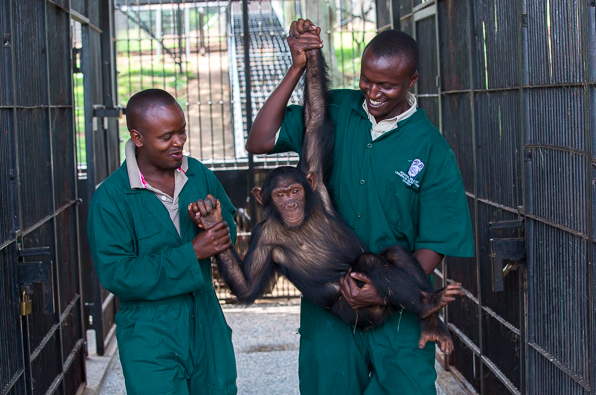A belief that humans may have inherited kindness from its close relative, the chimpanzee, is wrong, a study published Tuesday in Britain has found.
The new study finds instead, that unlike humans, chimpanzees are entirely selfish creatures who act in their own interests, turning conceived wisdom on its head.
A team of academics from the universities of Manchester, Birmingham, and St Andrews, and the Max Planck Institute for Evolutionary Anthropology, say humans were unlikely to have inherited the trait of kindness from their primate cousins.
The team worked with a group of 16 chimpanzees at the Ngamba Island Chimpanzee Sanctuary, in Uganda.
The animals, they found, are unlikely to take an interest in each other unless there is an anticipated benefit.
Previous research implying helpful behavior in chimps was likely to be a by-product of the way experiments were designed, they argue in the journal, Nature Communications.
Using two ingenious experiments, the team discovered the chimpanzees were no more likely to help feed each other as they were to block access to a box of peanuts.
One of the principle investigators, Dr. Keith Jensen from the University of Manchester, said the evolution of social behavior and what drives individuals to act altruistically, is an important and active area of debate.
“There has been an appealing suggestion that the roots of human altruism extend down at least as far as our common ancestor with chimpanzees,” Jensen said.
However, the results of this study challenges that view. “Helping” might have formerly arisen in previous studies as a by-product of interesting tasks, he said.











